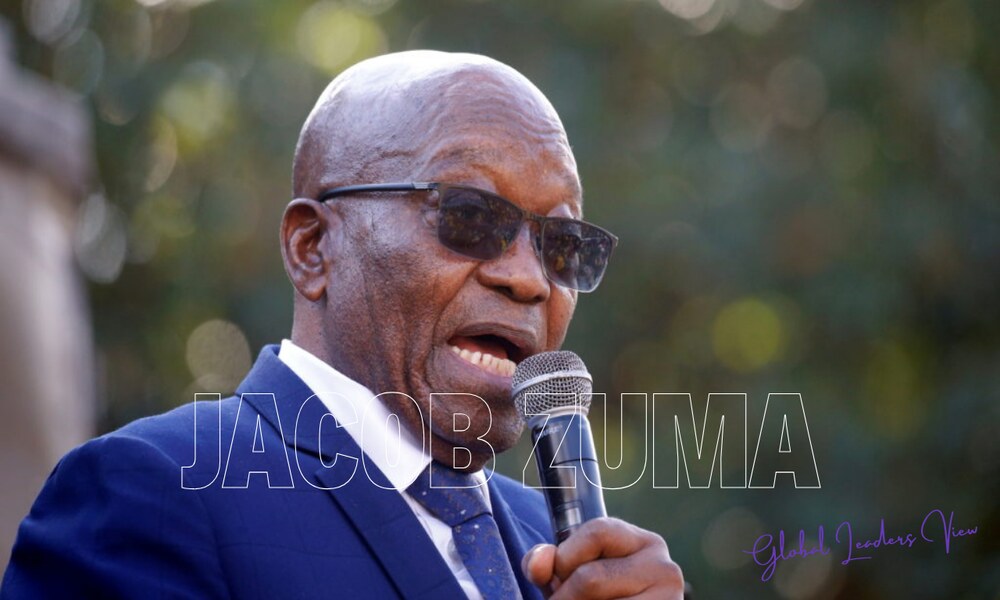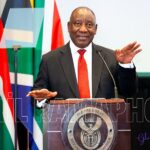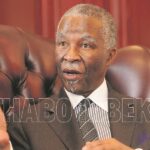Jacob Zuma: The Journey of an Influential Political Figure

Jacob Zuma, a name that resonates deeply in South African political history, is known for his controversial leadership, his rise from humble beginnings to the presidency, and his lasting impact on both the country and the African continent. This article seeks to explore the multifaceted journey of Jacob Zuma, examining his early life, political ascent, leadership style, controversies, and legacy. By understanding his complex history, we can gain insight into the broader political dynamics of South Africa and the challenges faced by its leaders.
Early Life and Humble Beginnings
Jacob Gedleyihlekisa Zuma was born on April 12, 1942, in the rural village of Nkandla, located in the KwaZulu-Natal province of South Africa. His upbringing was marked by hardship and poverty, growing up in a politically charged environment during apartheid. His mother, Gcinizwa, raised him after his father, a policeman, passed away when Jacob was still very young. Zuma’s early life was shaped by the oppressive realities of apartheid, which made his future seem uncertain. However, it was during these formative years that he developed his sense of resistance and a deep commitment to fighting racial injustice.
Zuma’s political involvement began in his youth. At the age of 16, he joined the African National Congress (ANC) and became active in the fight against apartheid. This decision marked the beginning of a long political journey that would take him from the underground struggle against apartheid to the highest office in the country.
The ANC Struggle and Imprisonment
In the 1960s, Jacob Zuma took part in the armed struggle against apartheid, a pivotal moment in his political career. He joined the ANC’s military wing, Umkhonto we Sizwe, which was responsible for organizing acts of sabotage against government infrastructure. His commitment to the anti-apartheid cause led to his arrest in 1963. Zuma was sentenced to 10 years in prison for conspiring to overthrow the apartheid government.
While in prison, Zuma’s resolve to dismantle apartheid only grew stronger. His incarceration did not deter him; instead, it provided him with an opportunity to solidify his position as one of the most prominent leaders in the ANC. He was released in 1973, after serving ten years in prison, and his role in the organization expanded as he became more involved in organizing political activities from exile.
Exile and Political Rise
After his release from prison, Zuma went into exile, first to Mozambique and later to Zambia. These years marked a significant phase in his political maturation. Zuma became a key figure in ANC operations abroad, working to maintain international pressure on the apartheid government. His time in exile allowed him to establish important relationships with international leaders and organizations that supported the ANC’s cause.
In the late 1980s, Zuma’s involvement in ANC activities gained momentum. He took on various leadership roles, including heading the ANC’s intelligence division. His political acumen and ability to navigate the complex world of diplomacy and internal ANC affairs made him a prominent figure within the party.
Return to South Africa and the End of Apartheid
The 1990s marked a historic turning point for both South Africa and Jacob Zuma. In 1990, President F.W. de Klerk lifted the ban on the ANC, signaling the beginning of the end for apartheid. Zuma, alongside other key figures in the ANC, returned to South Africa in 1990 after years of exile. His return was symbolic of the ANC’s struggle and resilience, and it set the stage for his eventual rise to national prominence.
Zuma’s political influence grew rapidly in the post-apartheid era. In 1994, the ANC won the first democratic elections in South Africa, and Nelson Mandela became the country’s first black president. Zuma, who had been an influential member of the ANC, played a key role in the party’s leadership, particularly in the party’s efforts to unite a divided South Africa. As the ANC’s deputy president, Zuma became a trusted ally of Mandela, helping to shape policies that would foster national reconciliation and economic transformation.
Jacob Zuma’s Presidency: A Nation Divided
Jacob Zuma’s ascent to the presidency was a dramatic chapter in South African history. He became the President of South Africa in May 2009, after defeating Thabo Mbeki for the leadership of the ANC in 2007. His victory marked a significant shift in the country’s leadership, as Zuma brought a different style of governance that was rooted in his background in the liberation struggle and his grassroots support.
Zuma’s presidency was marked by ambitious policies aimed at addressing the historical injustices faced by South Africa’s black majority. His government focused on issues such as poverty alleviation, infrastructure development, and efforts to combat unemployment. However, his tenure was also marred by a series of scandals and controversies that would ultimately overshadow his leadership.
One of the most significant scandals during Zuma’s presidency was the controversy surrounding his private residence in Nkandla. In 2014, it was revealed that taxpayer money had been used to fund extensive renovations to Zuma’s personal home. This sparked public outrage and led to calls for his resignation. Despite mounting criticism, Zuma survived calls for impeachment, although his reputation was severely tarnished.
Corruption Allegations and the State Capture Scandal
Jacob Zuma’s time in office was also overshadowed by widespread allegations of corruption. In particular, his association with the controversial Gupta family, who were accused of using their close relationship with Zuma to influence government decisions for their own financial gain, led to what became known as the “State Capture” scandal.
The Gupta family’s business empire was accused of securing lucrative government contracts through bribery and corrupt practices, with Zuma’s alleged involvement at the center of the controversy. The state capture investigation, which gained significant attention after Zuma left office, uncovered extensive evidence of corruption within the highest levels of government. Although Zuma denied any wrongdoing, his involvement in the scandal had a lasting impact on his legacy.
The End of Zuma’s Presidency and His Legacy
Jacob Zuma’s presidency came to an end in February 2018 when he was forced to resign due to mounting pressure from within the ANC. Cyril Ramaphosa, his deputy, succeeded him as president, marking a new era in South African politics. Zuma’s resignation was seen as a necessary step to restore faith in the ANC and address the pervasive corruption that had characterized his time in office.
Despite his controversial presidency, Zuma remains a polarizing figure in South African politics. For many, he represents the resilience of the struggle against apartheid, a man who rose from humble beginnings to become the president of a democratic South Africa. For others, his time in office symbolizes a period of political and economic decline, marked by corruption, mismanagement, and political infighting.
Zuma’s legacy continues to be debated. His supporters argue that he played a pivotal role in the transformation of South Africa and in the fight for the rights of the marginalized. His critics, however, emphasize the damage caused by his leadership, particularly in relation to corruption and the erosion of public trust in government institutions.
Global Leaders View: The Controversial Journey of Jacob Zuma
Jacob Zuma’s life and political career offer a compelling narrative of struggle, perseverance, and the complexities of leadership. From his early days in apartheid South Africa to his presidency and the controversies that followed, Zuma’s journey is a testament to the challenges faced by African leaders in the post-colonial era. While his presidency may have been marred by scandal and political turmoil, his legacy as a fighter for justice cannot be overlooked.
As South Africa moves forward, it will continue to grapple with the consequences of Zuma’s leadership, but his role in shaping the country’s political landscape is undeniable. The journey of Jacob Zuma remains one of the most intriguing and controversial chapters in modern South African history.
Recent Posts
Related Articles
Milan Dordevic: Navigating Two Decades of Innovation and Leadership Internationally Across Industries
You’ve got to be serious at some things, at a particular age,...
ByGlobal Leaders ViewFebruary 5, 2025Yossi J Amuial: Steering the Course of Innovation and Excellence at Executive Tag & Title Svcs, Inc.
In the vast sea of leadership, true leaders emerge not by just...
ByGlobal Leaders ViewFebruary 5, 2025Lisa Anna Palmer: A Journey of Empowerment, Vision, and Impact
You can hate more but you can never love less. The hope...
ByGlobal Leaders ViewFebruary 5, 2025Krystn Macomber: From Athlete to Entrepreneur: The Journey of a Visionary CEO
Krystn Macomber knows winning. Going back to her days as a D1...
ByGlobal Leaders ViewFebruary 5, 2025














Leave a comment